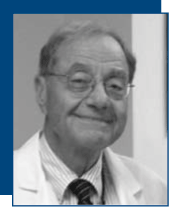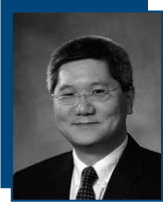Over the years, the CBBF has broadened its grant mechanism to include more clinical concerns and since 2006 has worked with the OI Foundation on the Linked Clinical Research Center (LCRC) program. The LCRC program is a multi-year, multi-center effort to improve care for people with all types of OI across the entire lifespan. The LCRC program seeks to shape the future of OI care by:
- Addressing barriers to research for a rare disorder and speeding up the pace of research focused on clinical care.
- Addressing the gap in information about care for teens and adults who have OI.
- Creating evidence-based guidelines for pediatric and adult care for all types of OI.
The LCRC program consists of a network of medical centers that have expertise caring for children and adults who have OI as well as experience in conducting high quality medical research. As a group, the linked centers pursue research into OI, and refer children and adults who have OI to care health care providers. Data collected at each center visit is maintained in a secure, central data-base and thoroughly analyzed. The privacy of each participant is carefully protected. The Centers are capable of tracking how OI changes across a lifetime, what complications are common, and which treatments are beneficial.
The LCRC program is important because the success of research studies into a rare disorder like OI depends on solving two fundamental problems: getting enough people to participate so the observations are meaningful and gathering data from different medical centers in exactly the same manner. Solving these problems is the heart of the LCRC program.
Linked Clinical Centers are up and running in the following cities:
- Chicago, IL (Shriner’s Crippled Children’s Hospital)
- Montreal, QC (Shriner’s Crippled Children’s Hospital)
- Houston, TX (Baylor University Hospital)
- Portland, OR (Oregon Health and Science Hospital)
- Baltimore, MD (Kennedy Krieger Hospital)
- Washington, DC (National Institute of Health)
- Wilmington, DE (Nemours/Alfred I. duPont Hospital for Children)
A few words from LCRC Partners
 |
“The establishment of the LCRC program will expand the amount of available information about OI medical problems, will undoubtedly focus attention on certain problems, and in the long run, facilitate finding solutions.” –Jay R. Shapiro, M.D.
|
| Dr. Shapiro is the Director of the Osteogenesis Imperfecta Clinic at the Kennedy Krieger Institute and a graduate of Boston University School of Medicine. “The LCRC will permit: 1) developing a large database which will be useful both in research and patient care, and 2) permit clinicians and investigators at several institutions to develop standards for assessing care. These are two objectives the Kennedy Krieger programs has been very interested in developing, and the LCRC will facilitate reaching these goals. The establishment of the LCRC program will expand the amount of available information about OI medical problems, will undoubtedly focus attention on certain problems, and in the long run, facilitate finding solutions.” | |
 |
“I strongly believe that this network will grow and be the vehicle for improving the health and future of OI patients throughout the country and beyond.” – Brendan Lee, M.D., Ph.D. |
|
Dr. Lee is an Investigator at the Howard Hughes Medical Institute and Professor, Department of Molecular and Human Genetics at Baylor College of Medicine. “We are delighted to be awarded a founding Linked Clinical Research Center for Osteogenesis Imperfecta. I think that it has been well demonstrated for other clinical conditions, for example in pediatric cancer, that coordinated multi-center clinical research networks are the only and most effective way for developing novel treatments and management approaches for diseases. I strongly believe that this network will grow and be the vehicle for improving the health and future of OI patients throughout the country and beyond. The network will be critical for testing new treatments as well as for answering important clinical questions in an organized and scientifically rigorous fashion.” |
|
